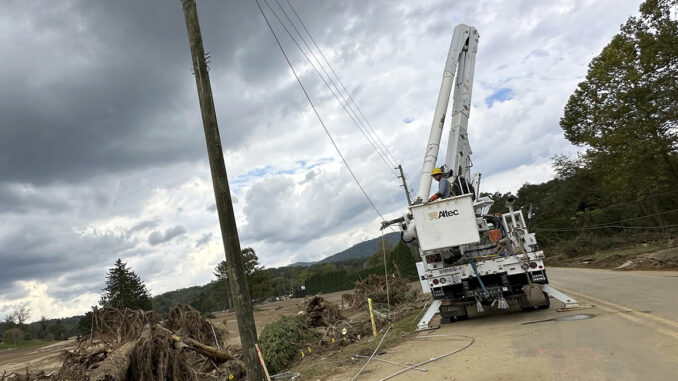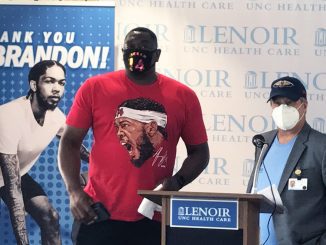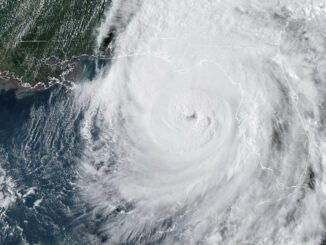
While hospitals and health care organizations in the Southeast largely stayed open and functioning during Hurricane Helene to provide essential care for their communities, they were not unscathed.
The massive system battered the region’s health centers, causing blackouts, wind damage, supply issues and flooding — leading to a dramatic rescue of patients and workers at the Unicoi County Hospital in eastern Tennessee.
Most hospitals used generators or backup systems to power their facilities through the hurricane. Many places halted elective procedures. Few closed completely.
Providers, like their communities, are now in the recovery phase. Health care workers are still unaccounted for in western North Carolina, where at least 57 people died in and around Asheville. Officials also say mental health care facilities were destroyed in that area.
Health care executives across the Southeast all say it’ll be a long road back to normal.
“I feel really positive about our health care system’s response,” said Rob Hudspeth, senior vice president at UNC Health Appalachian. “But this is not going to be a one or two-week set of circumstances.”
At one point, all three of UNC Health Appalachian’s facilities were on backup power supplies, and they were fully stocked with supplies, including oxygen, Hudspeth said. But some things are harder to predict, like the collapse of cellphone networks and roads.
Until last Monday, the system had no way to communicate with staff. As of last Wednesday, 25% of UNC Health Appalachian’s staff was unaccounted for. The biggest challenge now, Hudspeth said, is locating those people.
Three of 129 community health centers in western North Carolina were damaged, said ReAnne Mayo, spokesperson for Agape Health Services, which is not affiliated with damaged centers but is part of a network of community health centers. They are also struggling to locate staff.
The centers are essential to providing their communities primary care and mental health care.
“I think that everyone prepared for a catastrophe but not an all-out wipeout,” Mayo said. “The one concern I really have is the aftermath. How long can someone go without treatment and medications, especially behavioral health, before it becomes catastrophic?”
Mission Hospital in Asheville is setting up mobile units with kitchens, bathrooms and handwashing stations, as well as “Mini Marts” stocked with free food, water and toiletries.
“Hospitals are really great at being able to anticipate what the immediate needs are going to be,” said Tatyana Kelly, senior vice president of the North Carolina Healthcare Association. “In good news, one of the things that’s a huge success is that no facilities are closed.”



